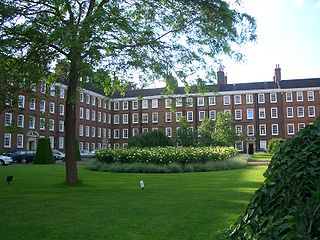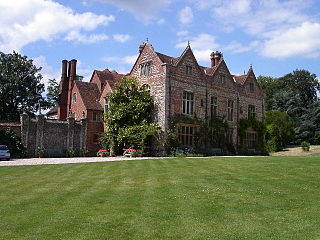Humphrey Haggett (5 January 1601 – by 26 November 1634) was an English politician who sat in the House of Commons in 1625 and 1626.

The House of Commons of England was the lower house of the Parliament of England from its development in the 14th century to the union of England and Scotland in 1707, when it was replaced by the House of Commons of Great Britain. In 1801, with the union of Great Britain and Ireland, that house was in turn replaced by the House of Commons of the United Kingdom.
Haggett was the son of Humphrey Haggett, of London. He was admitted to Merchant Taylors' School in 1613 and matriculated at St John's College, Oxford on 12 November 1619, aged 17. He became a student of Gray's Inn in 1624. In 1625, he was elected Member of Parliament for Chichester. He was re-elected MP for Chichester in 1626. [1]

Merchant Taylors' School (MTS) is a British independent private day school for boys. Since 1933 it has been on 285 acres (115 ha) of grounds at Sandy Lodge in the Three Rivers district of Hertfordshire.

St John's College is a constituent college of the University of Oxford. Founded as a men's college in 1555, it has been coeducational since 1979. Its founder, Sir Thomas White, intended to provide a source of educated Roman Catholic clerics to support the Counter-Reformation under Queen Mary.

The Honourable Society of Gray's Inn, commonly known as Gray's Inn, is one of the four Inns of Court in London. To be called to the bar and practise as a barrister in England and Wales, a person must belong to one of these Inns. Located at the intersection of High Holborn and Gray's Inn Road in Central London, the Inn is both a professional body and a provider of office accommodation (chambers) for many barristers. It is ruled by a governing council called "Pension", made up of the Masters of the Bench, and led by the Treasurer, who is elected to serve a one-year term. The Inn is known for its gardens, or Walks, which have existed since at least 1597.



